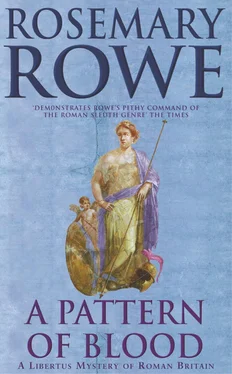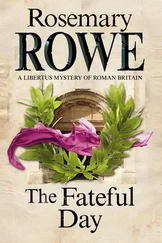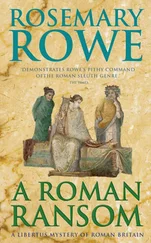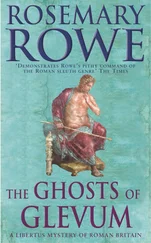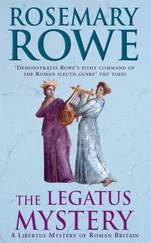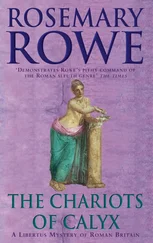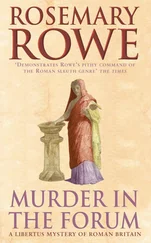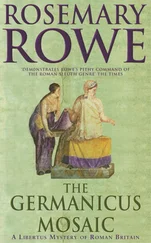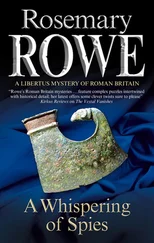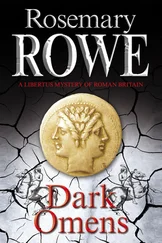Rosemary Rowe - A Pattern of Blood
Здесь есть возможность читать онлайн «Rosemary Rowe - A Pattern of Blood» весь текст электронной книги совершенно бесплатно (целиком полную версию без сокращений). В некоторых случаях можно слушать аудио, скачать через торрент в формате fb2 и присутствует краткое содержание. Год выпуска: 2000, ISBN: 2000, Издательство: Headline, Жанр: Исторический детектив, на английском языке. Описание произведения, (предисловие) а так же отзывы посетителей доступны на портале библиотеки ЛибКат.
- Название:A Pattern of Blood
- Автор:
- Издательство:Headline
- Жанр:
- Год:2000
- ISBN:9781472205063
- Рейтинг книги:4 / 5. Голосов: 1
-
Избранное:Добавить в избранное
- Отзывы:
-
Ваша оценка:
- 80
- 1
- 2
- 3
- 4
- 5
A Pattern of Blood: краткое содержание, описание и аннотация
Предлагаем к чтению аннотацию, описание, краткое содержание или предисловие (зависит от того, что написал сам автор книги «A Pattern of Blood»). Если вы не нашли необходимую информацию о книге — напишите в комментариях, мы постараемся отыскать её.
A Pattern of Blood — читать онлайн бесплатно полную книгу (весь текст) целиком
Ниже представлен текст книги, разбитый по страницам. Система сохранения места последней прочитанной страницы, позволяет с удобством читать онлайн бесплатно книгу «A Pattern of Blood», без необходимости каждый раз заново искать на чём Вы остановились. Поставьте закладку, и сможете в любой момент перейти на страницу, на которой закончили чтение.
Интервал:
Закладка:
All the curia and clientes would attend, in turn. Add to these the funeral orator, the dancers, singers and musicians, the torch-carriers and litter-bearers, the family, the household slaves, one or two favoured tradesmen and a scattering of the simply curious, and you will see that the decurion’s funeral procession promised to be a very impressive one indeed.
But of Rollo there was still no sign. I wandered back into the triclinium (unannounced, to the consternation of the slaves at the door), and found Flavius reclining on one of the couches, eating. Someone had brought him a hot pie from a market stall, and he was stuffing it into his mouth as though greasy pastry and early-morning lumps of gristly meat were his idea of an ambrosial breakfast. A goblet of wine stood on a low table before him.
He looked up as I came in, wiped his fingers on the linen napkin he had been given and hastily rearranged his cushions. I had the distinct impression that he was up to something. He gazed at me with a triumphant air.
I had not been present the night before, when Marcus had interrogated him, and looking at that swarthy, fleshy face with its fleeting but unmistakable expression of cunning, I suddenly determined to repair the omission. Without Marcus, however, Flavius was unlikely to tell me anything. My best chance was to unsettle him.
I gave him a cheerful smile and sat down, uninvited, on a nearby stool.
It was an action of such unprecedented insolence, in the presence of a purple-striper, that he almost choked on his pie. I followed it up with another, speaking to my betters without being spoken to, and without the appropriate apologetic preamble. ‘Good morning, citizen.’ I sensed, rather than saw, Junio at my elbow, sending up silent prayers for my preservation to all the gods he knew.
I was offering a few unspoken petitions of my own. This was dangerously disrespectful, and Flavius was frowning angrily. I took a deep breath.
‘Well, Flavius,’ I said comfortably — worse and worse, no honorific titles and using his name like an equal — ‘I hear it was your sharp eyes which discovered Lupus.’
The scowl visibly lightened. I breathed out. Flavius was susceptible to flattery. I poured out a little more of it, hopefully, like a householder making a libation of oil to the pantry gods.
‘You have sharper eyes than I have,’ I said. ‘I did not notice the stains.’
He smirked. ‘The old goat concealed them in his sleeve folds, by holding his arm against him as though it were stiff. I noticed he was doing it, but I thought nothing of it.’ He leaned forward confidentially, the grease of the pie still glistening moistly on his lips: ‘I have known Lupus for years, and he is forever complaining of his aches and pains. Every time one sees him he has some fresh affliction — and one dares not ask, unless one wants a whole recital of his woes. He is famous for it in the town. No one would even have thought it odd that he had developed a new malady, until his greed betrayed him. The slave came by with the wine jug, and Lupus couldn’t resist holding out his bony arm for more.’
His right arm, I thought. I did a swift calculation. The dagger blow that killed Quintus had been delivered slightly upwards and to the right. Surely that would be most easily inflicted by a left-handed man? It was hard to be sure. Quintus had presumably been reclining on his couch when the blow was struck, so he could have been attacked from any angle. Besides, few Roman citizens would be left-handed — any such tendency was schooled out of them early. The Roman army did not tolerate ‘sinister’ infantrymen — they spoiled a formation, and left vulnerable gaps in a phalanx — and a similar prejudice ran through polite society. Soldiers and schoolboys learned very quickly, if not to be right-handed, at least to be ambidextrous.
I looked at Flavius. He was supporting himself on his left arm and unconsciously holding his pie in his right hand, but, as in the case of Lupus and the wine, that told me nothing. It is considered polite in most Roman circles for a man to eat and drink with his right hand, and to reserve his left for more intimate duties.
Flavius was looking at me expectantly. I said quickly, ‘You have known Councillor Lupus a long time?’
‘He is ex-Councillor Lupus, now,’ Flavius reminded me, with a certain relish. ‘That is why he hated Quintus Ulpius so much. That and some argument over that secretary of his. He was telling me about it in the garden — though I confess I was scarcely paying attention. You wouldn’t have done so either, in my place. Listening to Lupus rehearsing his miseries is a famously tedious business. And that is why it is difficult to answer your question, citizen. I have known him, from a distance, for many years, but I have, shall we say, avoided his acquaintance.’
‘You did not need his support in the curia?’ I suggested. Most men with large estates would court a magistrate, however tedious, if it would assist them to gain contracts and avoid taxes.
He was unabashed by this. ‘Naturally, I sent him tribute if it was expedient,’ he said, ‘but I had other friends on the council. Quintus Ulpius was one of them, until this business with Julia. You heard about that?’
I was on dangerous ground here. ‘I heard that she had been your wife,’ I said carefully.
Not carefully enough. ‘Had been my wife!’ he snorted angrily. ‘She should still be my wife! By Jupiter, Greatest and Best, she was promised me by her father, Gaius Honorius, when I lent him money to buy a forest. As soon as she was old enough, he said, and sure enough, the day she was twelve he brought her to my house, and gave her a handsome dowry into the bargain. And now, of course, I’ve lost that too.’
‘A manus marriage?’ I said. I was surprised. That form of legal wedding was almost obsolete, but if that was the case, Flavius certainly had a claim. Of course his bride was very young — we Celts do not usually marry off our daughters while they are still such children — but twelve is the legal age under Roman law, and it is always fashionable, among the socially aspiring, to do in Britain as they do in Rome. In any case, her youth made no difference. In a manus marriage, the wife legally passed into her husband’s power, and so did her property. She might even have been fictitiously ‘bought’ by her husband, in front of the magistrates, in which case she was undoubtedly his. ‘Can you prove that?’
He shook his head. ‘There was no legal ceremony. And I cannot prove “usage”, either — Julia was too clever for that. She has made a point of sleeping away from home for three successive nights every year — so she has avoided legally passing into my family. She claims ours was a free marriage, and therefore she can leave it when she chooses. Her father would have supported me, but he died of a fever years ago, and her brother became her official protector. He has never liked me. He made no secret of it — he was always encouraging her to run home, and I’d have to send after her and woo her back.’ He looked at me mournfully. ‘Great Jupiter the Mighty, I’d have sought a divorce myself twenty times over if Julia were not so beautiful.’
Or so rich, I thought uncharitably.
Flavius, though, had not finished his complaint. ‘The things I had to promise! I tell you, citizen, I spoiled that woman. I allowed her to go to the baths every day, during the women’s hours, though it costs twice as much for a female: I let her have pets, and visits to friends, and yearly outings to the theatre: I even permitted her to learn an instrument and play at banquets which I gave. What more could a man do? And still she was not satisfied.’
I was trying to imagine what Gwellia would have said if I had confined her to such dubious pleasures, but I managed to smile encouragingly.
Читать дальшеИнтервал:
Закладка:
Похожие книги на «A Pattern of Blood»
Представляем Вашему вниманию похожие книги на «A Pattern of Blood» списком для выбора. Мы отобрали схожую по названию и смыслу литературу в надежде предоставить читателям больше вариантов отыскать новые, интересные, ещё непрочитанные произведения.
Обсуждение, отзывы о книге «A Pattern of Blood» и просто собственные мнения читателей. Оставьте ваши комментарии, напишите, что Вы думаете о произведении, его смысле или главных героях. Укажите что конкретно понравилось, а что нет, и почему Вы так считаете.
